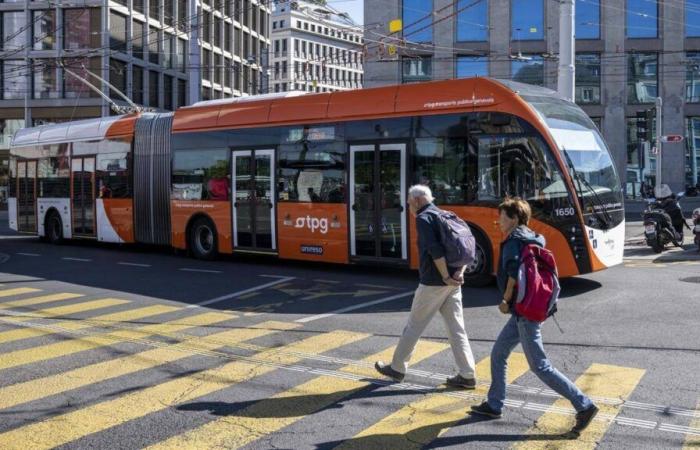The Constitutional Chamber of the Court of Justice of Geneva rejected the appeal against the total free Geneva Public Transport (TPG) for young people and partial for seniors. She also considers it inadmissible. The two PLR deputies, who appealed in their personal capacity, “do not have the standing to appeal against the disputed cantonal law,” the Constitutional Chamber announced on Thursday. According to her, the advantage that this law grants “does not entail, as it stands, any direct and personal disadvantage for the appellants, even in the future.”
On the merits, Yvan Zweifel and Adrien Genecand considered that the new law on TPG, which comes into force on January 1, 2025, was not consistent with higher law. In another opinion, the Constitutional Chamber confirms “the nuanced and differentiated solution of the Geneva legislator which distinguishes the situation of AVS/AI beneficiaries from that of young people aged 6 to 24.”
Margin of appreciation
The Constitutional Chamber recalls that the federal standard invoked obliges the Confederation and the cantons to ensure that they provide a sufficient supply of public transport. In addition, prices paid by users must cover an appropriate share of costs. The fact remains that the cantonal legislator has a wide margin of appreciation to define the amount of this participation, according to her.
The chamber indicates that it has rejected the appellants’ argument, essentially based on a legal opinion mandated by the Federal Office of Transport. She analyzed the figures provided by the Department of Health and Mobility (DSM) regarding the 2023 TPG budget, before examining the local situation, while recalling the economic, ecological and social dimensions of the federal standard.
As a result, the new Geneva provisions are compatible with the Swiss Constitution, according to the chamber. AVS/AI beneficiaries pay half the price of monthly or annual subscriptions, while young people benefit, under certain conditions, from full support. These measures encourage them to use public transport.
“Banking argument”
In October, the Constitutional Chamber refused to grant suspensive effect to this appeal, allowing the new law to come into force in January. The appellants will examine the decision made public on Thursday to decide whether they will appeal to the Federal Court, indicated Yvan Zweifel, interviewed by Keystone-ATS.
“The argument of inadmissibility is shaky. If we can’t appeal, who can?” he asks himself. On the merits, Yvan Zweifel notes that the judgment is very detailed: “We were right to ask the question, because the answer is not obvious.” For his part, State Councilor Pierre Maudet, in charge of the DSM, welcomes this decision. “I fought to carry out this project for the middle class, which aims to reduce household budgets. I am pleased that justice confirms that everything was done according to the rules.”






